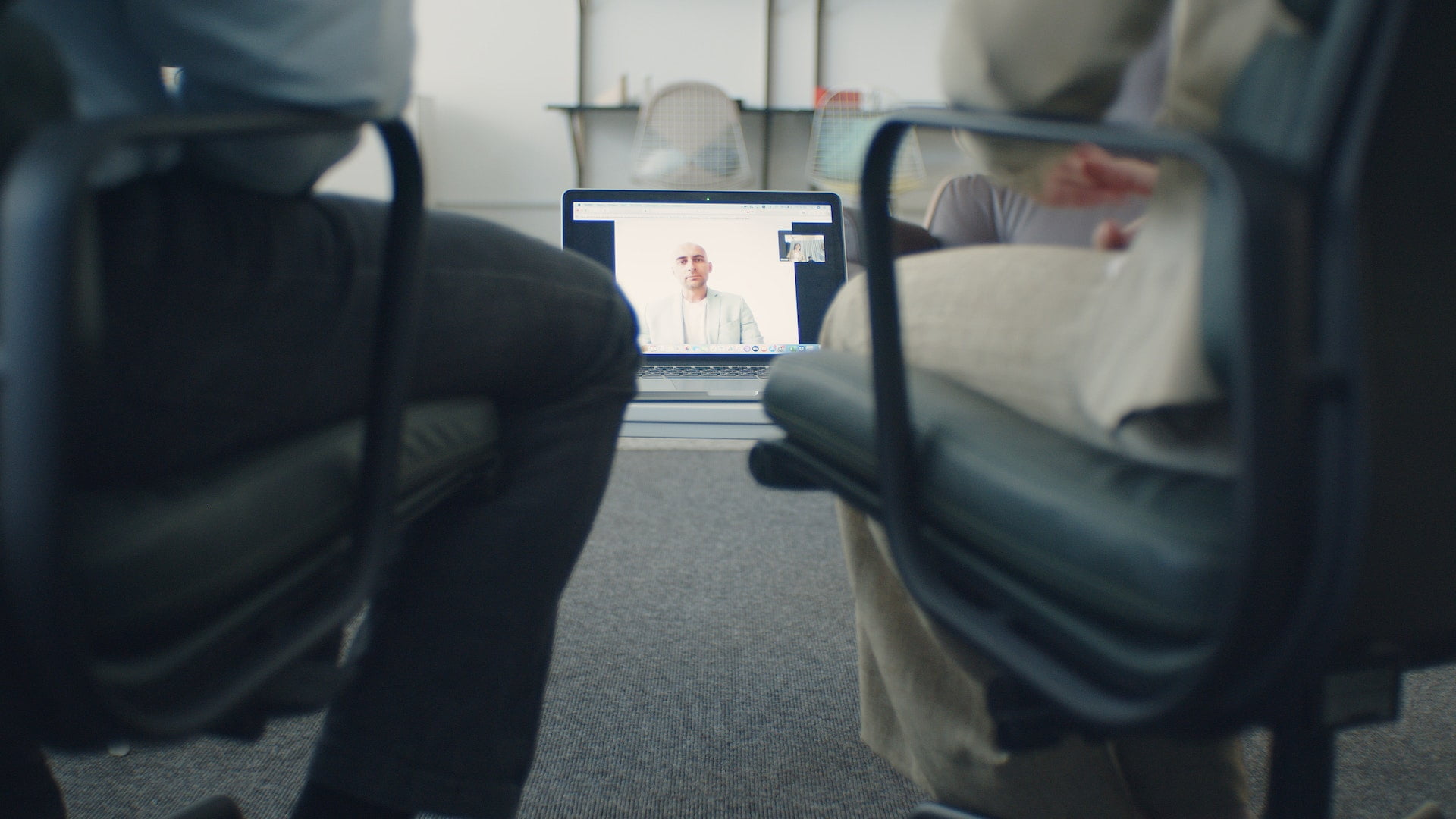 Imagine a family dinner table where the only sound is the clinking of cutlery against plates. There’s a palpable tension in the air, but nobody says a word. It might seem like a scene from a melodramatic movie, but for many, it’s an all-too-familiar reality. Families, friends, and partners often tip-toe around potential disagreements, fearing the eruption of conflict. But is this avoidance truly beneficial? What if, beneath this façade of peace, there are unresolved issues simmering, waiting to boil over? Have we, as a society, conditioned ourselves to view conflict as an undeniable evil? Or is there a chance that facing our disagreements might not just be necessary, but actually advantageous?
Imagine a family dinner table where the only sound is the clinking of cutlery against plates. There’s a palpable tension in the air, but nobody says a word. It might seem like a scene from a melodramatic movie, but for many, it’s an all-too-familiar reality. Families, friends, and partners often tip-toe around potential disagreements, fearing the eruption of conflict. But is this avoidance truly beneficial? What if, beneath this façade of peace, there are unresolved issues simmering, waiting to boil over? Have we, as a society, conditioned ourselves to view conflict as an undeniable evil? Or is there a chance that facing our disagreements might not just be necessary, but actually advantageous?
Peace is not the absence of conflict, but the ability to cope with conflict by peaceful means. – Ronald Reagan
The Roots of Conflict Avoidance
To truly grasp why we might sidestep conflict, we need to embark on a journey to its origins. Family dynamics, past traumas, societal norms, and peer pressures all play pivotal roles in molding our approach to confrontation.
The Imprint of Family Dynamics
Our family serves as our first emotional classroom. Witnessing parents or guardians sidestepping conflicts or, on the other hand, diving into fiery confrontations can cast a lasting shadow. Such early exposures may embed an apprehension towards conflicts, urging us towards silence rather than expression.
The Shadows of Past Traumas
Traumas, particularly those from our impressionable years, often influence our present behaviors. A child exposed to intense conflict might evolve a mechanism to avert disputes, not as a sign of frailty but as an unconscious effort to maintain emotional peace.
The Cultural and Societal Angle
Many cultures prioritize societal cohesion over individual voices. While this emphasis intends well, it can sometimes suppress genuine conversations. When conformity is heralded, it inadvertently propels conflict avoidance.
Societal Expectations and Peer Pressure
From our early years, we’re often counseled with sayings like, “If you can’t say something nice, stay quiet.” Society tends to laud those who toe the line. Earning labels like “well-behaved” or “easy-going” in schools for being non-confrontational might seem rewarding, but at what expense? This push to fit in can sometimes smother our genuine voices.
Healthy Conflict: An Oxymoron or Reality?
The term “healthy conflict” might seem paradoxical at first. How can disagreement, which often brings discomfort or pain, be deemed healthy? Well, the answer lies not in the conflict itself but in the way we handle it.
The Gestalt Perspective: Stay ‘In Contact’
Gestalt psychology, an insightful branch of psychology, introduces the idea of being “in contact.” Being in touch with our feelings, with others, and with the present moment is crucial. Relationships that avoid all disagreements risk becoming stagnant. They might seem calm on the surface but lack depth and genuine connection. True intimacy is built when both parties remain “in contact,” even during disagreements.
Depth Over Surface: Relationships that dive into the depths of feelings, even the turbulent ones, achieve genuine connection over those that just skim the surface.
The Difference Between Aggression and Assertion
When we speak of healthy conflict, we aren’t endorsing aggressive confrontations. There’s a vast difference between aggression and assertion. While aggression is loud, violent, and overwhelming, assertion stands for voicing concerns, needs, and desires without attacking the other. It’s about being firm yet respectful. Assertive communication fosters understanding and builds bridges.
A Constructive Approach: By being assertive, you’re allowing space for both parties to express and grow without feeling threatened.
The Strengths of Facing Disputes Head-On
Confronting disagreements doesn’t mean brewing storms; it’s about addressing the looming clouds before they burst. By discussing differences openly:
- We foster mutual respect.
- We cultivate a deeper connection.
- We create an environment conducive to the growth of both individuals.
Reaping the Rewards: When disagreements are faced with maturity, they become stepping stones, elevating the relationship to new heights.
Engaging in healthy conflict is akin to navigating a river. While there might be rapids and turns, with the right approach, they can lead to serene waters and uncharted beautiful terrains.
Paving the Path for Constructive Conflict
The only way to avoid criticism is to do nothing, say nothing, and be nothing. – Aristotle
Every relationship, whether familial, romantic, or platonic, encounters its fair share of disagreements. It’s not the presence of conflict that defines a relationship, but how it’s managed. Constructive conflict can foster growth, deepen connections, and lead to mutual understanding.
Embrace Vulnerability
Opening up about our innermost fears, desires, and needs can be daunting. Vulnerability is like standing at the edge of a cliff, unsure of what awaits below. But when embraced, it can also be the bridge that brings two differing viewpoints together. For instance, rather than saying, “You never listen to me,” one could express, “I feel unheard and that hurts.” Such expressions not only communicate the issue but also the emotion behind it, paving the way for a genuine dialogue.
The Power of Openness: By showing our authentic selves, we invite others to do the same, creating a space of mutual respect and understanding.
Strength in Softness: Vulnerability, contrary to some beliefs, is not a sign of weakness. It’s a testament to courage and authenticity.
Equip with Tools for Respectful Disagreements
The art of disagreement isn’t just about expressing our viewpoints but doing so in a way that fosters understanding. Consider these tools:
- ‘I’ statements: Instead of “You always neglect our plans,” try “I feel hurt when our plans are overlooked.” It expresses the emotion without placing blame.
- Active listening: This involves fully concentrating, understanding, and responding to what the other person is saying. For example, if a friend shares their distress about being overlooked at work, instead of immediately offering advice, first affirm their feelings: “It sounds like you’re feeling unappreciated.”
- Taking timeouts: Recognize when emotions are high. For instance, during a heated argument, stepping away for even ten minutes can provide clarity and prevent regrettable outbursts.
Seek External Guidance When Needed
Sometimes, a conflict can become too overwhelming or complicated. In these situations, turning to external sources like counselors or therapists can be invaluable. These professionals offer a neutral perspective and provide tools and techniques that might not be obvious to the involved parties. It’s akin to seeking a tutor when a particular subject in school becomes challenging.
The Value of Mediation
A neutral third party can help dissect the root cause of a conflict and provide actionable steps towards resolution.
Growth Through Guidance:
With platforms like eTherapyPro, individuals have access to professional counseling in the digital age. Such platforms bridge the gap between those seeking help and licensed therapists, making guidance more accessible and convenient.
Conclusion
Conflict, often draped in an intimidating cloak, has been unfairly maligned. In truth, beneath its challenging exterior lies an opportunity. It’s a mirror that reflects our deepest desires, fears, and needs. Instead of shying away from its reflection, we should bravely face it. By understanding our emotions and those of others, by actively listening and voicing our concerns assertively and compassionately, we can transform these confrontations into bridges of connection.
As we wrap up this exploration, let’s leave with a gentle invitation: The next time you sense a conflict brewing, take a moment. Breathe. Reflect. Dive deep into its essence. Understand that it’s not just about clashing viewpoints but about two individuals yearning to be heard and understood. Don’t run from it; embrace it. For in its heart, conflict holds the seeds of understanding, growth, and genuine connection. Remember, every storm has the potential to end in a radiant rainbow.


